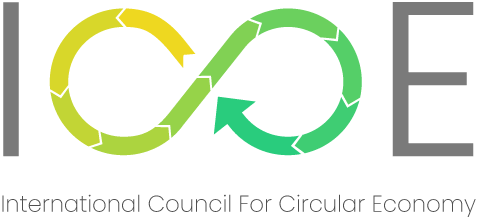Plastic is everywhere. It is in your food, sea salt and is even coming out of your tap. Which all adds up to us ingesting about a credit card’s worth of microplastics every week.
But surely the tide is turning? Awareness levels appear to be commensurate with the problem and businesses and governments tell us they are responding to the challenge. Yet emissions from plastics are rising and, according to a new study released today, the world is reaching a tipping point on plastics that will ‘trigger effects we are not able to reverse’.
“Plastic is deeply engrained in our society, and it leaks out into the environment everywhere, even in countries with good waste-handling infrastructure,” explains Matthew MacLeod, Professor at Stockholm University and lead author of the study, led by researchers from Sweden, Norway and Germany.
The researchers say it poses a global threat. A predicament made worse by public perceptions that the problem is in hand. The truth is it is cheaper for some companies to make virgin plastic than to recycle it. While many of the items we may believe can be recycled simply can’t.
And as John Oliver explained on his HBO show, Last Week Tonight, ‘our personal behaviour is not the main culprit here’, it is the inaction of the plastics industry, which spends too much money convincing people that ‘if they do the right thing it will be recycled’ that is one of the main culprits.
In the new European study Mine Tekman, a PhD candidate at the Alfred Wegener Institute in Germany and co-author of the research, says current solutions are not sufficient to tackle the ‘global threat’ of plastics.
“The world promotes technological solutions for recycling and to remove plastic from the environment,” Mine said. “As consumers, we believe that when we properly separate our plastic trash, all of it will magically be recycled. Technologically, recycling of plastic has many limitations, and countries that have good infrastructures have been exporting their plastic waste to countries with worse facilities. Reducing emissions requires drastic actions, like capping the production of virgin plastic to increase the value of recycled plastic, and banning export of plastic waste unless it is to a country with better recycling.”
Until they banned imports of global plastic waste in 2018, 70% of it used to end up in China. Other Asian countries are still suffering, though. The Last Week Tonight expose on the issue revealed that in Malaysia there are operations illegally incinerating and burning plastics, causing respiratory problems in citizens, especially in children and the elderly.
Governments worldwide did take a step in responding to this aspect of the crisis last year when 180 countries agreed to place strict limits on exports of plastic waste from richer countries to poorer countries.
Environmental disaster
Half of all plastics ever made have been produced since 2005. And as Annika Jahnke, co-author of the European study and Professor at the RWTH Aachen University explains, remote environments are being badly hit.
Annika said: “In remote environments, plastic debris cannot be removed by cleanups, and weathering of large plastic items will inevitably result in the generation of large numbers of micro- and nanoplastic particles as well as leaching of chemicals that were intentionally added to the plastic and other chemicals that break off the plastic polymer backbone. So, plastic in the environment is a constantly moving target of increasing complexity and mobility. Where it accumulates and what effects it may cause are challenging or maybe even impossible to predict.”
Biodiversity loss in the oceans – there is already a swirling patch of visible micro plastic waste in the pacific, and accelerating climate change are some of the irreversible trends the researchers warn of – if immediate action isn’t taken.
“The cost of ignoring the accumulation of persistent plastic pollution in the environment could be enormous,” added Matthew MacLeod. “The rational thing to do is to act as quickly as we can to reduce emissions of plastic to the environment.”
Policymakers must take drastic action to tackle the scourge of plastics and the public must demand they do so. And the industry must pay for the negative impact it makes, rather than pass the buck to a misled public. Which could be done by expanding the scope of policies, including the polluter pays principle, or Extended Producer Responsibility (EPR) clause, to force companies to deliver on the big promises they make on plastics. And on an individual level we must keep recycling paper, cardboard, aluminium and other recyclable materials.
Circular economy
The circular economy is another burgeoning field generating solutions that can help pave the way for businesses to more easily pursue a nature and humanity over profit ethos. A circular economy the Ellen MacArthur Foundation says must be ‘based on the principles of designing out waste and pollution, keeping products and materials in use, and regenerating natural systems’.
The Ellen MacArthur Foundation is leading the way in measuring circularity progress using Circulytics 2.0, which it labels the ‘most comprehensive circularity measurement tool’ available.
Explaining more about Circulytics, and the essence of a functioning circular economy, Jarkko Havas, who leads the Ellen MacArthur Foundation’s Insights & Analysis work around data and metrics, joined Marc Buckley recently on the Inside Ideas podcast.
Jarko talks to Marc about the inextricable links between climate change and the way ‘we use and produce materials’ and says it is critical companies are able to properly monitor how they are doing in making these materials in a more circular way.
“We want to ensure companies report in the future on their circular economy performance to show how they are acting to have these positive impacts,” he said.
The post Wishcycling won’t save planet first appeared on Innovators magazine.
